|
My oldest daughter - Sue-Ling-Chan-Wyles - was born on August 8th, 1997. I was married to her mother - Cindy Chan - in Beruwela, (Sri Lanka) on December 13th, 1996. The Venerable Mangala Thero (a very learned Theravada Buddhist Monk now deceased) gave Sue-Ling the Dharma-Name 'Dhammika' - or 'She Who Diligently and devotedly Adheres to the Dhamma'. The Buddha advised a follow of His Dhamma to 'avoid' mixing with evil or negative persons - as their psychological and physical 'taints' (kilesa) or negative karma generated by excessive greed, hatred and delusion. Such people must help themselves - with those already possessing a pure mind (that is beyond corrupt) assisting them in this task. Those still attempting to purify and stabilise their minds must - for a time - separate themselves from the masses until their minds are strong enough to truly help and assist others. Sue-Ling is a grown woman now finding her own way in the world - and she is engaged in a number of ongoing projects designed to help and assist many different people. This is the ;essence' of Dhamma!
0 Comments
Over a number of weeks, Mangala Thero introduced me to the fundamentals of the Theravada School as taught in Sri Lanka. When returning to the UK - I had him featured in a Taijiquan magazine. However, some years later (around 2005), the Ven. Mangala Thero set me the following letter:
Author’s Note: In 2017, I wrote a short article about the Pali term ‘Bhavana’ and since then, I have been asked to write a more in-depth article regarding the meaning and application of this term in its Pali and Sanskrit context (both different and yet overlapping in places). Whereas in my earlier article (referenced below) I focused a great deal on the Chinese language term for ‘bhavana’ - in this outing I have limited myself to just the briefest of references to the Chinese equivalent – an act of considerable will-power considering Chinese Buddhism is one of my academic specialities (both ethnically and academically). However, I have always held the Theravada tradition in high regard and have been helped tremendously by its many practitioners and institutions around the world! From my Chinese Ch’an practice (and penetration of the empty mind ground) - I have come to see and appreciate how the many different branches of Buddhism (and reality in general) all manifest from the same stout trunk... Although what I convey to you is academically correct – you do not have to accept my conclusions. Always think for yourselves and make-up your own minds! ACW (17.9.2021) When I was studying Theravada Buddhism in Sri Lanka (in 1996), a term I came across continuously was ‘bhavana’ (‘भावना’ Pali and ‘भवन’ Sanskrit) - this was invariably used to refer to the act of seated ‘meditation’ and all the psychological and physical discipline required to successfully carry-out this important Buddhist practice. Indeed, within the Chinese written language, ‘bhavana’ is referred to as ‘修習’ (Xiu Xi) - or a central method of mind-body transformation – literally ‘self-cultivation method(s) or ‘habits’’ or ‘disciplined paths which intersect at a certain point of development’. A more succinct translation could be ‘paths of self-discipline' with the caveat that what is being suggested is the strict disciplining of the mind and body through the correct application of the Vinaya Discipline and the Bodhisattva Vows. Therefore, the single act of seated meditation has a wealth of supporting disciplinary activities surrounding its application, and does not appear does not suddenly appear out of a vacuum of non-effort. In other words, ‘bhavana’ refers to an act of ‘meditation’ which is the summation of the entire Buddhist path! Although the emphasis was always upon seated meditation, of course, standing, sitting and lying-down is allowed in the Buddhist Suttas – which very much depends upon the meditation teacher and the practitioner involved. Compassion, loving-kindness and wisdom must always be the driving force behind the practice of ‘bhavana’. As a ‘noun’, the Sanskrit dictionary states that भवन (bhavana) refers to:
The Pali dictionary suggests that ‘bhavana’ (भावना) refers to 'mental development' (lit. 'calling into existence, producing') in what in English is generally referred to 'meditation'. The Theravada School of Buddhism distinguishes two types of bhavana:
Interestingly, the very similar Sanskrit term ‘भावना’ (bhāvnā) refers to feeling, sensation, emotion and sentiment and is certainty moving toward the Buddhist (Pali) implications. Perhaps the Buddha modified a Pali term which once referred to the external practice of building houses and cultivating fields for farming – but changed its onus from this ‘objective’ meaning to a purely ‘subjective’ meaning relating to states of mind and patterns of thought and emotion. Just as rocks, weeds and stones are removed from the soil to make it fertile – the Buddhist practitioner uproots greed, hatred and delusion from the psychic fabric of the mind so that the mind becomes ‘fertile’ to receive the fruits of Buddhist self-cultivation. The Pali term appears to be referring to ‘that which arises from within’ - whilst the Sanskrit term is referring to ‘that which arises from without’. I would suggest that the inner perception of boundless space integrates with the awareness of boundless outer space – and that this is how the Buddha ultimately reconciles the two distinct meanings of this term. If a practitioner applies the Dhamma correctly – then like a plant growing from a seed into a might tree – the fruits of the Dhamma will manifest in the mind, body (and through behaviour) the environment!
As a number of sincere practitioners have contacted me of late enquiring about the Pure Land Teachings as preserved within China - I have decided to make a simple offering of photographed pages presenting Charles Luk's expert guidance on this matter as recorded in his book entitled 'The Secrets of Chinese Meditation'. I have chosen the original (1964) hardback edition - as quite often later editions were sometimes altered here and there to suit the agenda of various publishers. This is Chapter Three (3) of that book which runs from and to pages 81=108.
Sitting-up with neck and back support in a comfortable chair can be useful - but lying down is just as good. Posture can involve any relevant position that you need rather than conformity to a universal standard. The Buddha talks of standing, walking, sitting and lying-down (he died lying on his right-side). The point is that a posture should allow an individual to 'forget' about the body. Pain is one of the three stages of sensation mentioned by the Buddha - together with 'pleasure' and 'neurality'. A convenient meditation posture should generate either a relaxed 'pleasure' or an indifferent 'neutrality' to the body. However, pain has the ability to 'breakthrough' any indifference being cultivated - until the 'indifference' becomes stronger than the pain. If you focus on 'Who is hearing?' and attempt to return all that is heard back to its non-perceptual essence - then the empty mind ground will be revealed. If a single sense can be 'returned' in this manner, then ALL of the other five senses (smell, touch, sight and touch) will automatically be returned generating a permanent unity of inner vision. Gone will be the duality that separates mind, body and environment. When this is achieved, pain is transformed into a distant 'drop' of water falling into the ocean...
Knowing when to ‘assert’ and when to ‘give-way’ are important attributes for any spiritual traveller. As human-beings, we can find ourselves in all kind of circumstance as the day unfolds and our life progresses. Much of this will be mundane, but occasionally reality will take a shocking turn for the worst! No one saw the Covid19 pandemic arriving and virtually everyone was taken by surprise – despite numerous horror films over the years expressing narratives involving dystopic futures on a planet ravished by some type of illness, plague or other torturous device! Usually, such story-lines involve society collapsing back into an armed feudalism where brutality is the order of the day. Only the strong survive by preying on the weak. Of course, due to poverty and asymmetric economic development around the world, many people already live in these hellish conditions. I would add that even within the so-called ‘civilised’ areas of the world – killing and barbarity still exists – although it is hidden to a far greater extent (like a bad dream that people would rather forget). Most people grow-up in the world learning to survive. Indeed, this is a crucial and necessary skill. It is not the skill of the huntsman or gathering skills of the scavenger – but rather the ability to navigate the character and personality of our fellow human-beings. Children can be cruel and adults can be deceptive – for many these observations are facts of life. This imbalance in the inner and outer environment must be dealt with in one way or another. Ch’an is not an easy undertaking because it requires a devoted self-effort to take on our own inner world before we set about attempting to make changes in our outer worlds. Many will attack and ridicule any attempt at self-discipline – but for the world to be a better place – self-discipline is exactly what is required. Looking within with clarity and steadfastness eventually develops to looking without with wisdom and knowledge! Our personal circumstance can vary wildly through our lives. Many will experience poverty, homelessness, abuse and all kinds of deprivations – whilst others will experience only affluence and relative well-being, etc. The point is that regardless of the differences that define our outer existence, the empty mind ground is exactly the same for all beings! Master Xu Yun (1840-1959) lived a life continuously ‘gazing’ at the empty mind ground without any deviation whatsoever! More to the point – Master Xu Yun integrated his expedient self (or that which will eventually fall away) with the permanent and ever-present empty mind ground! Regardless of the situation he found himself in, or the circumstances he had to traverse – Master Xu Yun judged human reality not from the ego infected with greed, hatred and delusion – but rather from the pure and clean empty mind ground which underlies all reality and permeates the universe without end! Knowing where to place oneself in the phenomenal world - so as to maximise compassion, wisdom and loving kindness – is exactly possessing the skill of ‘moving’ and remaining ‘still’ in all situations!
Master Xu Yun (1840-1959) inherited all Five Schools of Ch'an Buddhism. So respected was his spiritual attainments that he was even transmitted lineages that he had not formally trained within - but whose teachers recognised that his depth of insight, humility and compassion fully equalled the divine levels of attainment that their schools demanded! In other words, without going out of his room, he knew all things (to quote the 'Book of Changes'). Chinese culture is very different to that of the modern West - despite the obvious similarities and intersections. Within the schools of Chinese spirituality - individuals can live very long periods time - and lineages can be passed from long-dead Masters to living Teachers and Practitioners! There is no need to justify any of this, it is just how things are - pure and simple. Lineages are like streams that flow into mighty rivers and then the sea! A genuine lineage should have a compelling force all of its own that propels adherents toward the intended spiritual goal! A true lineage is like an ever-moving conveyor-belt that moves everything along - continuously - and in the same direction! We must all set a good example for our colleagues, students and descendants! If we cultivate virtue and set a good example - then by our pure actions we are 'adding' momentum to the lineages we represent!
The Buddha recognised that all physical bodies are born, exist and then die. This logical observation serves as the foundation of the Buddha’s Teaching. It is an inevitable process that every living-being must experience. An individual will be born, will live their life in any number of ways, and will then pass away through natural (old age) or unnatural (illness, injury or accident, etc) causes. According to the Buddha, the state of an individual’s mind is responsible for the ‘willed’ (volitional) actions performed through the body. The frequency of these decisions can be ‘healing’ and ‘compassionate’ or ‘debilitating’ and ‘horrible’ - it all depends upon the past conditioning (karma) of the individual mind (and body). By permanently ‘stilling’ (and ‘expanding’) the mind, all karmic production is eradicated. This is a moment of karmic purification of mind and body. The ‘ridge-pole of ignorance is destroyed forever’ as the Buddha states in the Dhammapada. This is the experience of nirvana whilst still inhabiting a human-body – and when death arrives the body will ‘fall away’ - revealing the state of experiencing ‘nirvana’ without inhabiting a body. Through adhering to the Vinaya Discipline – this strict regulation of the mind and body in the environment has a beneficial effect with regards to health. This is because every rule is designed by the Buddha to ‘remove’ a particular negative (karmic) trait that causes ‘suffering’ in the mind and body of the individual and which permeates out into the environment if not ‘checked’ through the deployment of purposeful discipline. This is how the Buddha strives to reduce suffering in the mind and body of the individual (and in the world). This process is cemented by emptying the mind of greed, hatred and delusion – whilst directly ‘perceiving’ the empty essence of the perceiving (and ‘non-perceiving’) mind. This is how the Buddha strives to eradicate all ‘illnesses’ (and illness generating ‘delusion’) from the mind, body and environment through the application of a strict discipline. This is why Master Xu Yun (1840-1959) was of the opinion that the Vinaya Discipline is a vital (foundational) element of ALL genuine schools of Buddhism – and refused to follow the example of Japan in ‘abolishing’ the Vinaya Discipline as a guide for monks and nuns. If a person wants to live longer and in a healthier manner – then follow the Vinaya Discipline!
Dear Ben My personal experience (for what it is worth), appears to suggest to me that the enlightened state can (and is) realised by all and sundry - irrespective of circumstance - even though I fully acknowledge that its attainment is 'rare' even for those who are actively seeking it. When I was on Mount Athos, for instance, (probably around 2001), I met some remarkable Orthodox Christian monks whose ideas were very similar with regards to inner attainment. I also appreciate the beautiful icons of Jesus Christ depicted as an Asian man! In the West, the Christian monastics are the people who 'look within' to a surprising degree - but due to humility - their attainments are virtually unknown. Of course, this is very different to what might be called the 'popular Church' which is only concerned with crass individuality, recruitment (through conversion) and the amassing of wealth! These are the missionaries who did so much damage in Asia in times gone by. I have no time for this type of 'racist' spirituality - but I know that this is not the genuine Christianity and does not represents the ordinary Christian people who are very 'humble' and very 'compassionate'. Where Judaism has assisted me is mostly through superb secular academics who have happened to be of a Jewish ethnicity. I have also lived in Hindu and Muslim families and experienced tremendous caring and compassion - not being asked for a penny even after a year of hospitality! In all of this I do not exclude those who see themselves as 'atheists' (other than 'fascists') - as reality can emerge at the strangest of times. I was once walking who a dense jungle in Sri Lanka (in late 1996) with a bare-footed Buddhist monk. Suddenly, a huge hooded-snake rose up from the ground and was about three or four foot off the ground. It gently looked at me - swaying left and right. The Bhikkhu did not break his stride but walked toward the snake - which slithered up his body and rested its head on his right shoulder! The Bhikkhu then asked me to 'touch' the snake's head - which I did in a type of 'haze'! The snake then dropped to the ground and retraced its slither back into the undergrowth. The monk said he has met this snake for nearly 20-years years and almost in the same spot! The snake wanted to make sure that I understood that this was his path and that the jungle was not 'safe' for inexperienced strangers!
I respect the Theravada School and have trained with its monks and nuns many times. I admire its Dhamma and work to protect and preserve it in Sri Lanka, Thailand and Myanmar, etc. However, there are certain differences of view which I wish to explore (although in my own training, I see no difference). The Theravada view (for many but not all) is that the senses are purified when the body (and mind) is removed from direct contact with a polluting environment (such as when entering a forest temple or monastery, etc). Only a monastic can purify their minds fully, with a lay man purifying his mind to a lesser degree than the average monastic, but certainly more so than a lay woman. The Ch’an School rejects this view. As the empty mind ground underlies ALL phenomenal existence, the idea that only monks (or nuns) can fully realise it does not hold, and is contradicted by the numerous examples of enlightened lay men and women in the Pali Suttas, and the Ch’an tradition (including children) within China (Vimlakirti is perhaps the greatest Indian example), but what does this difference mean in reality? The Theravada method suggests that enlightenment - I.e. the uprooting of greed, hatred and delusion – is dependent upon circumstance and is only possible if an individual is ‘removed’ from direct contact with the ordinary world. Then, the corrupting influence of the three taints diminishes and eventually falls away (as all stimulus ceases). However, should such an individual be plummeted back into the ordinary world, then this deluded mechanism would re-active and the mind be yet again consumed by greed, hatred and delusion. The Ch’an method ensures that whilst living in isolation, or at least relative peace for a while, the mind calms to a considerable degree so that the hua tou and gong-an methods can ‘return’ ALL sensory stimulus back to the empty mind ground from which it originated. Once the hearing has been returned, all the other five senses are also returned, and the empty mind ground fully penetrated and realised. This experience automatically ‘purifies’ the six senses in a permanent manner that cannot ever be re-corrupted. This is why the Ch’an School advocates the ‘Ch’an Week’, or periods of intense meditative activity interspersed with weeks (or months) of quite ordinary and mundane activity. This explains why many Ch’an monastics either return to lay life to spread compassion and wisdom throughout society, or hold office or other positions within the lay world as monastics with no problem whatsoever. It makes no difference where their expedient body resides, as the six senses have been fully imbued (and transformed) through the presence of a pervasive and all-embracing ‘emptiness’ which is as purifying as it is compassionate and full of loving kindness. This reality further explains why many Ch’an practitioners refuse to ordain in China, as there is no need to do so.
|
Archives
March 2024
Categories
All
|


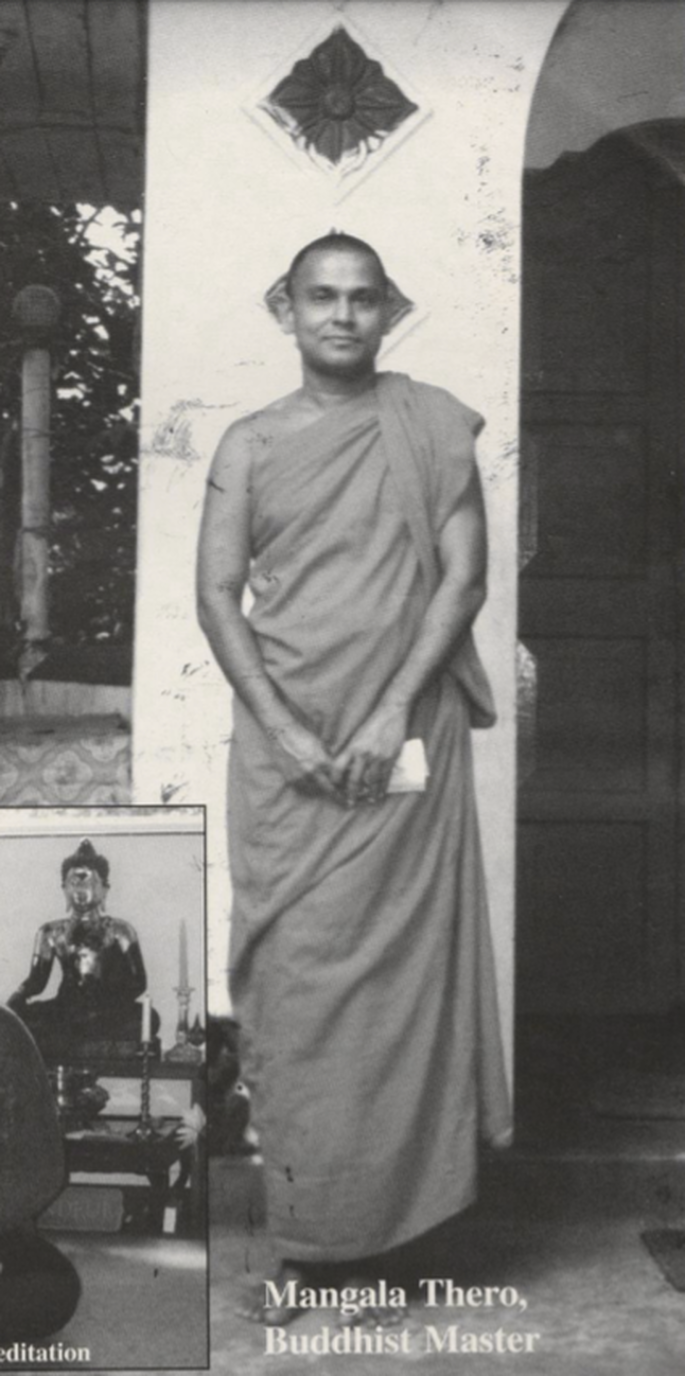


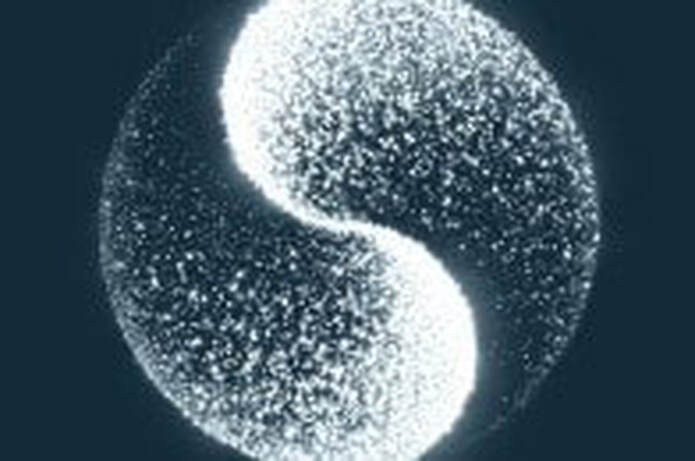
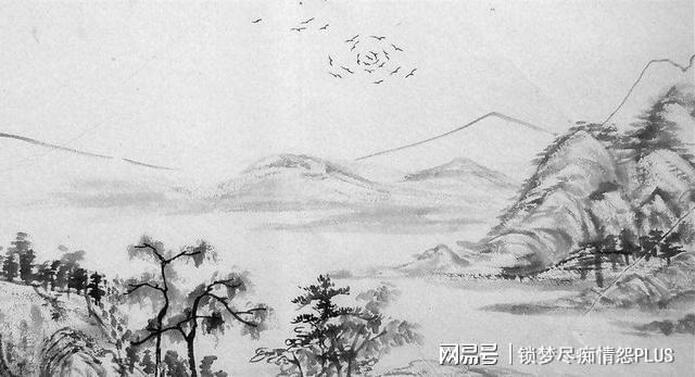
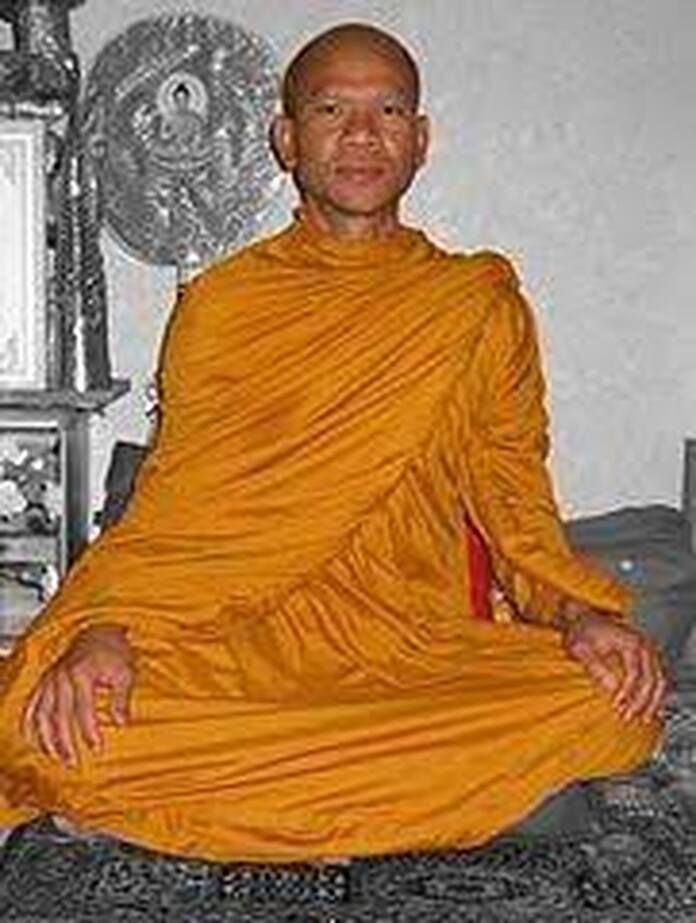
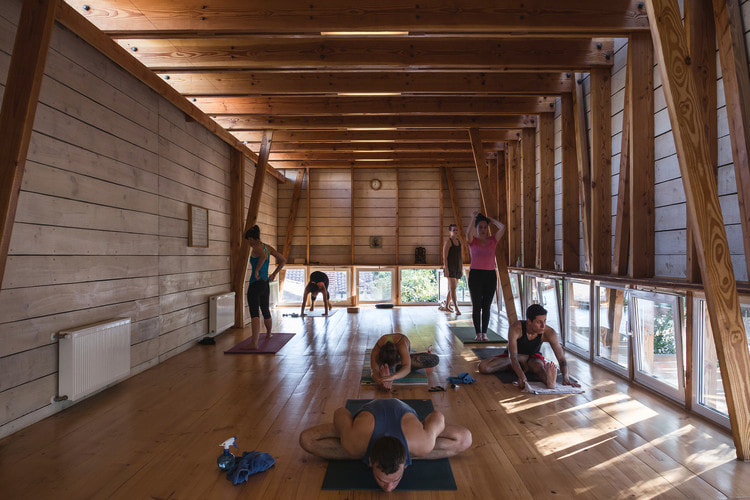
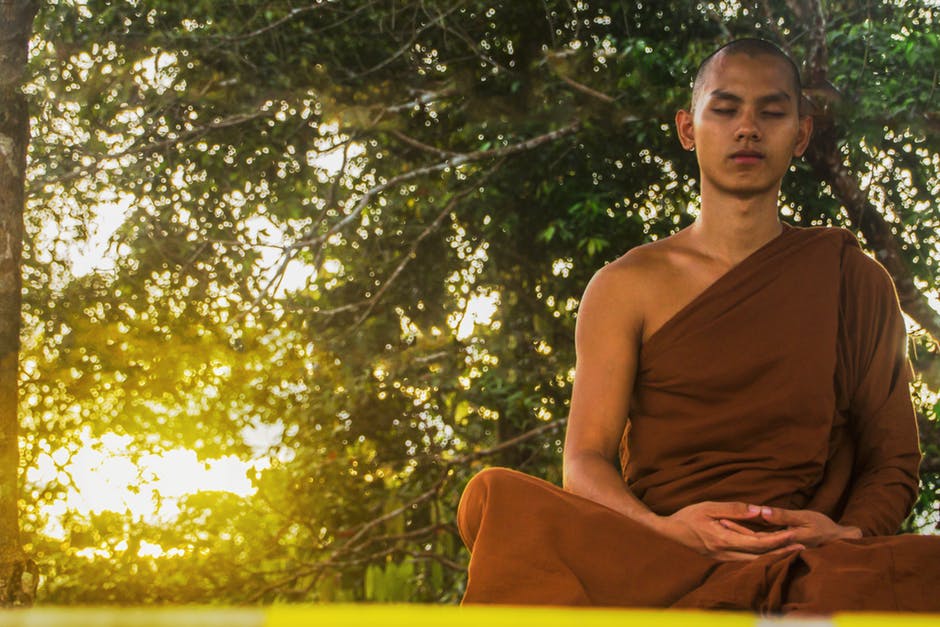
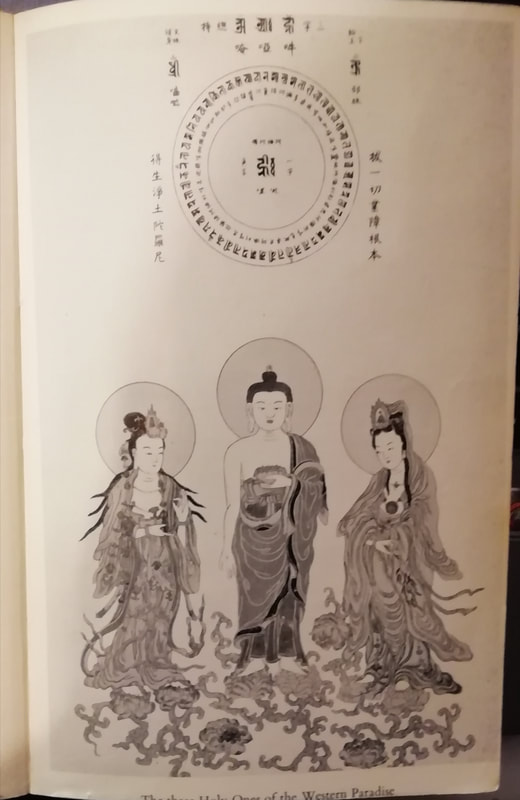
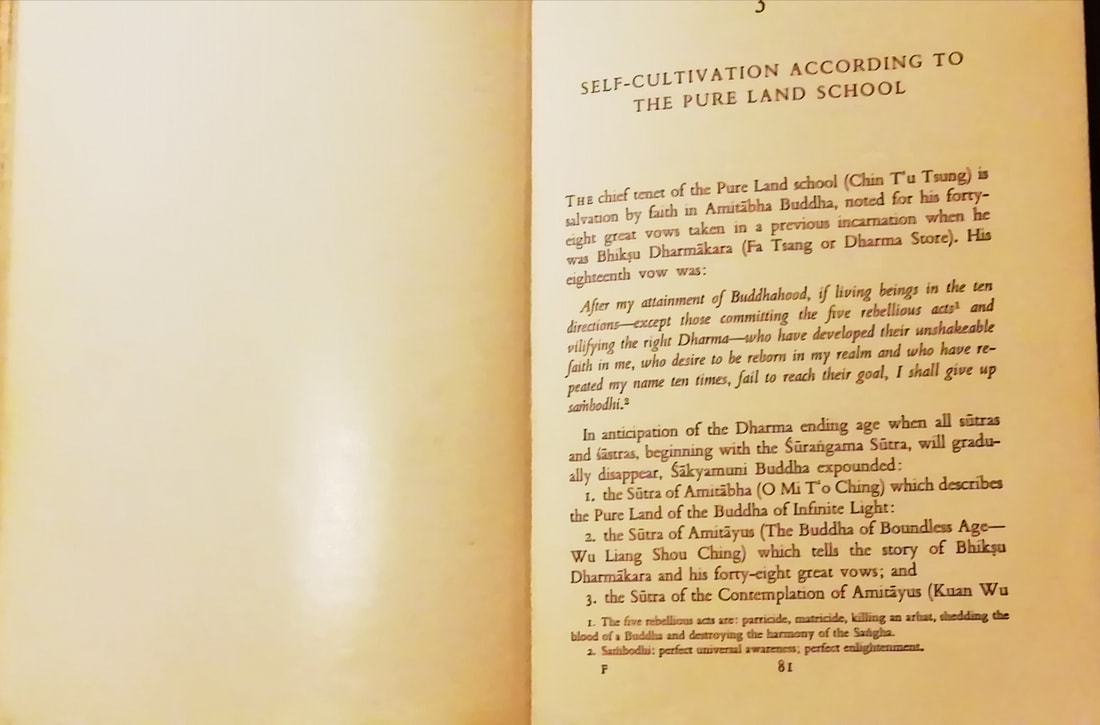
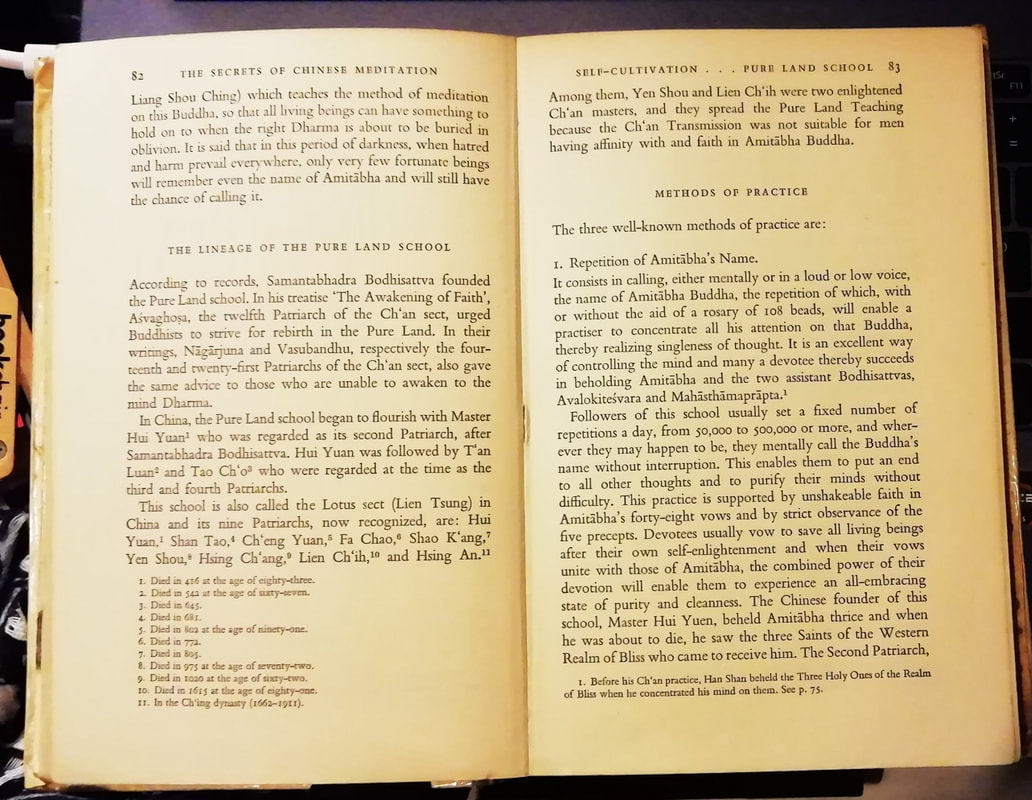
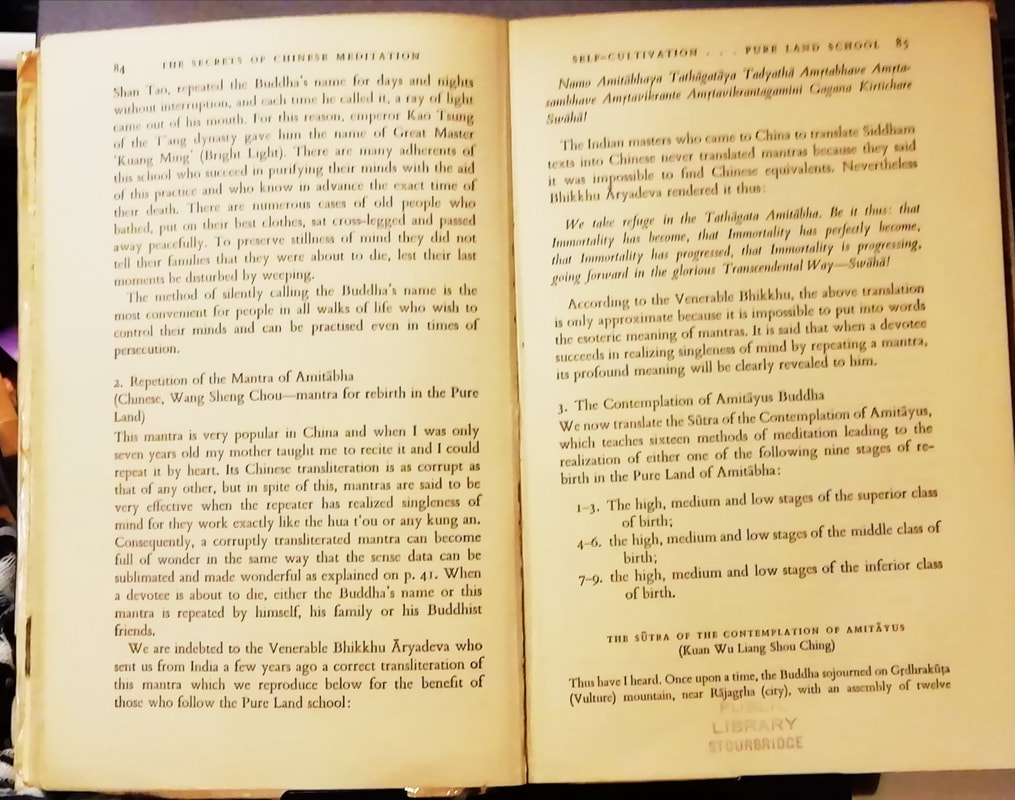
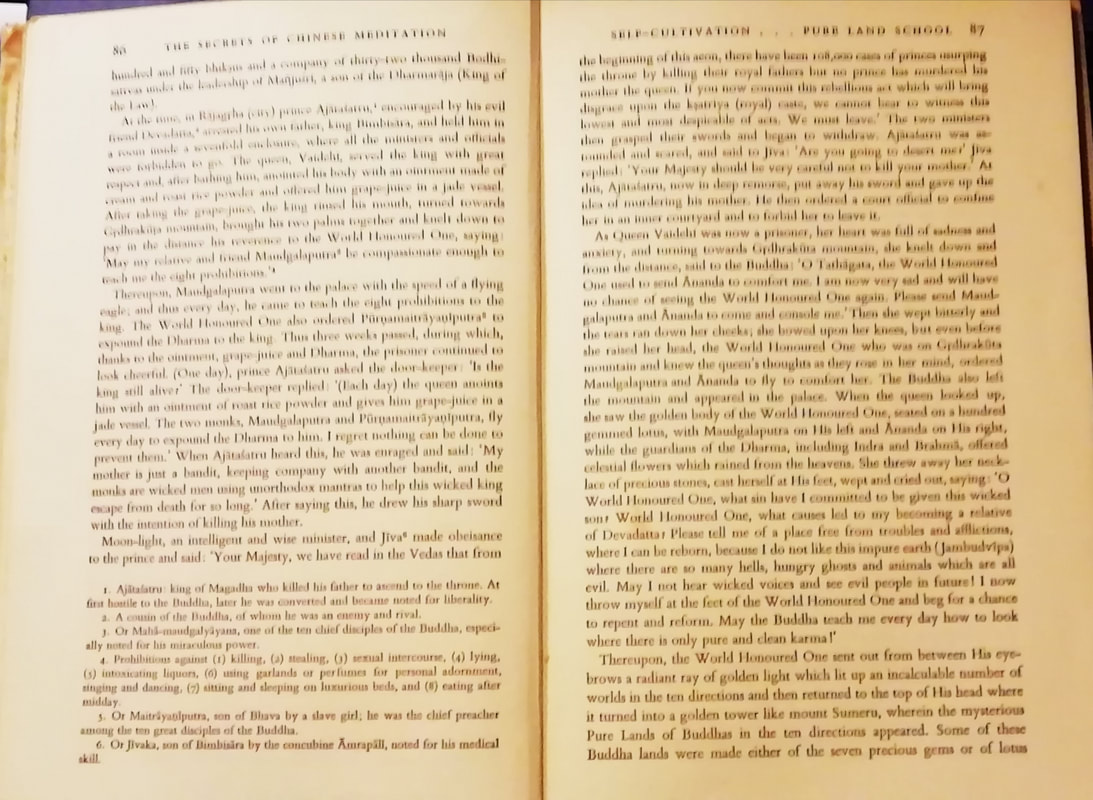
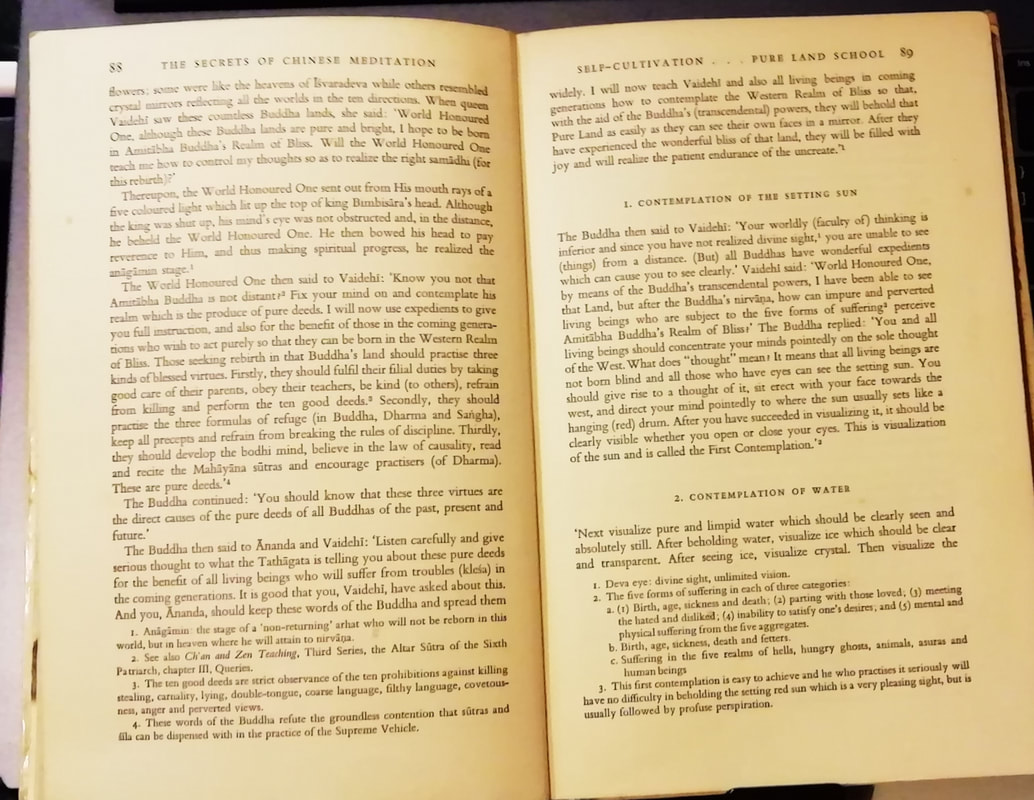
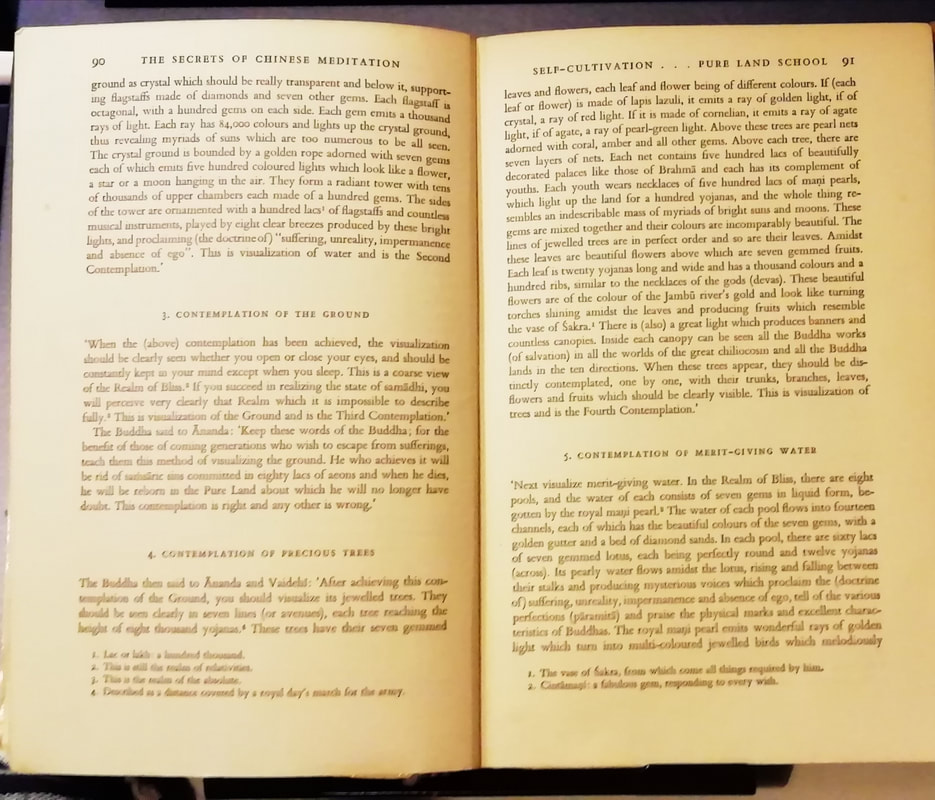
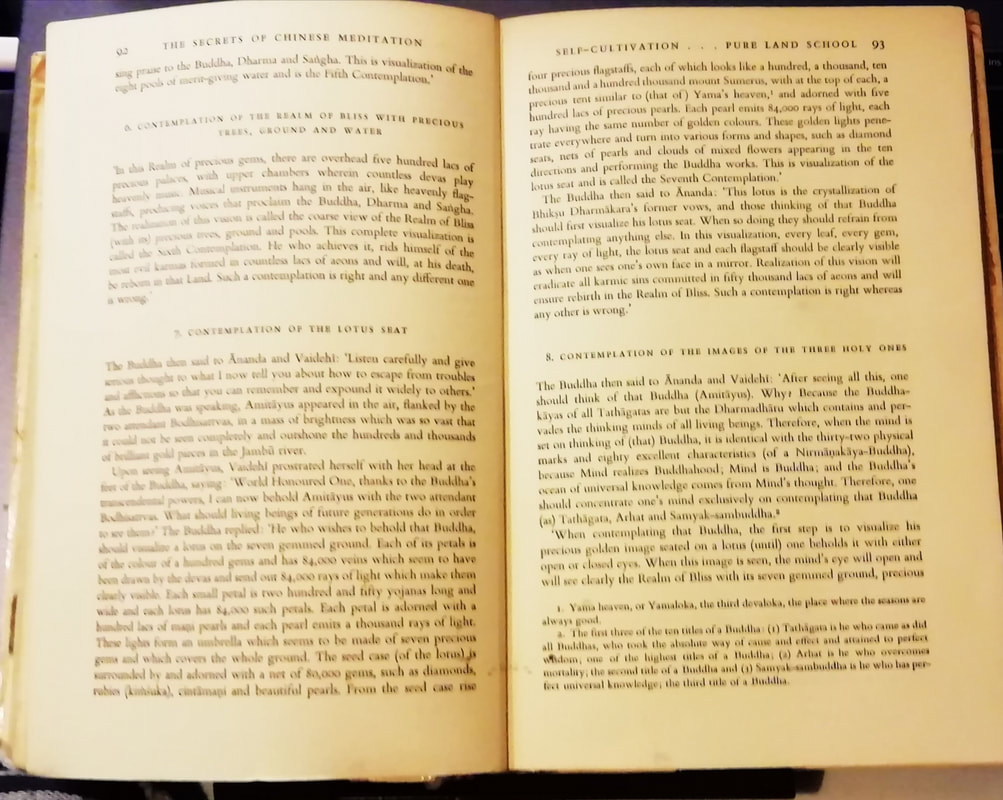
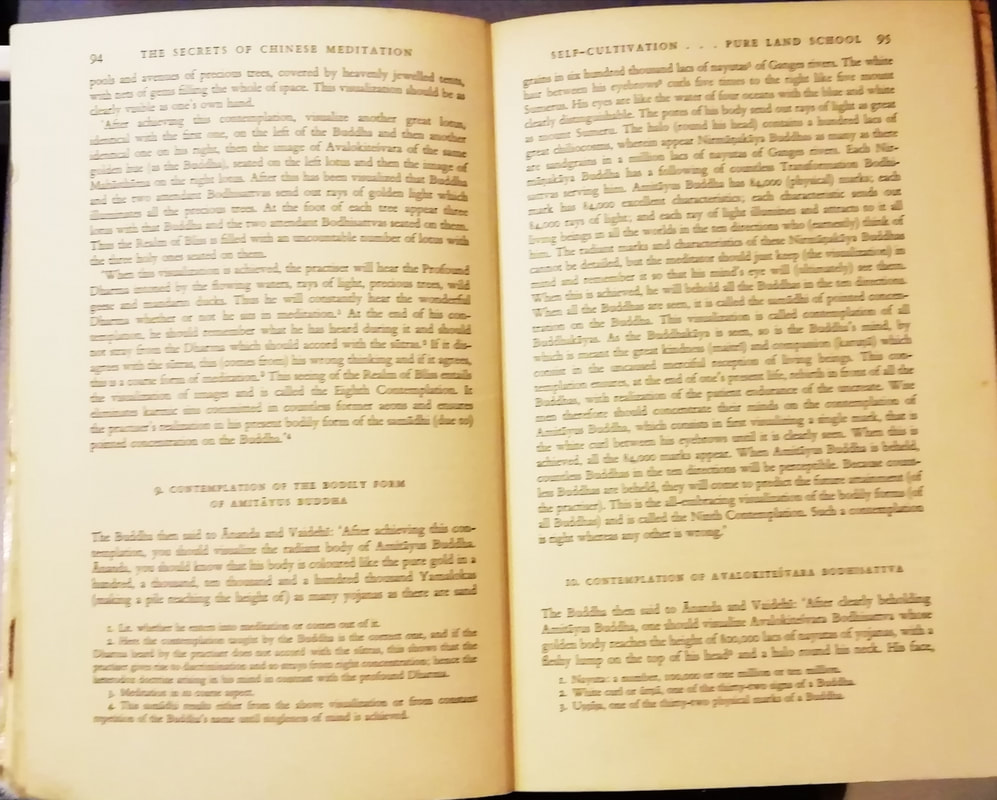
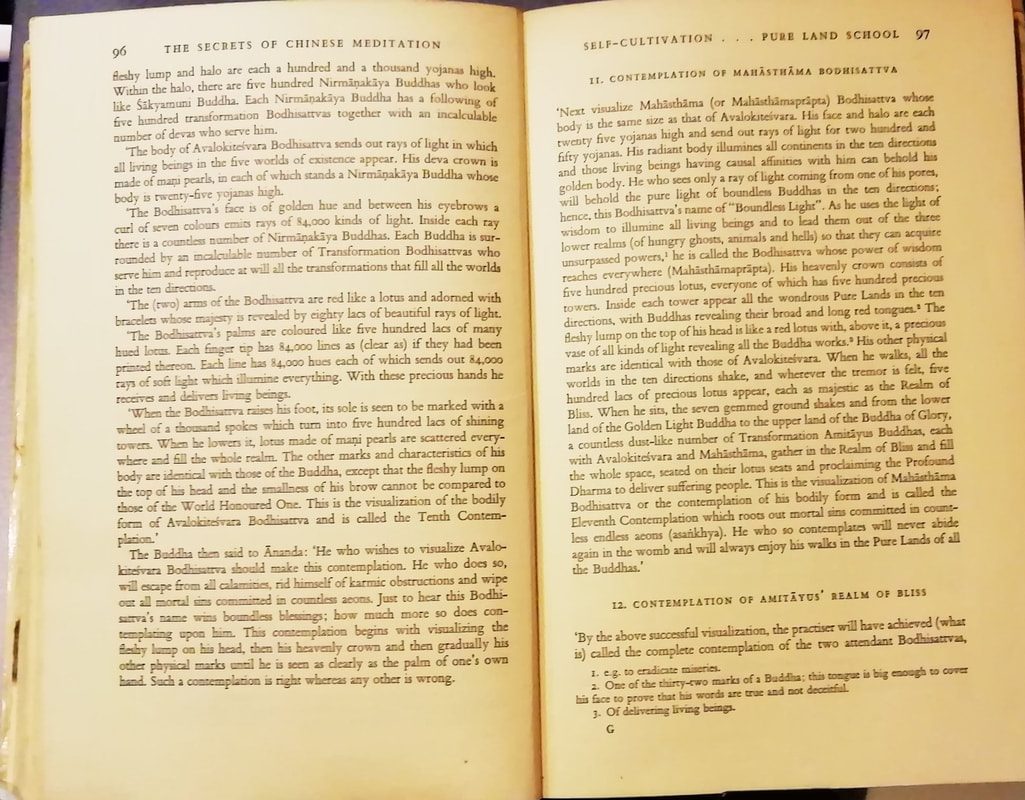
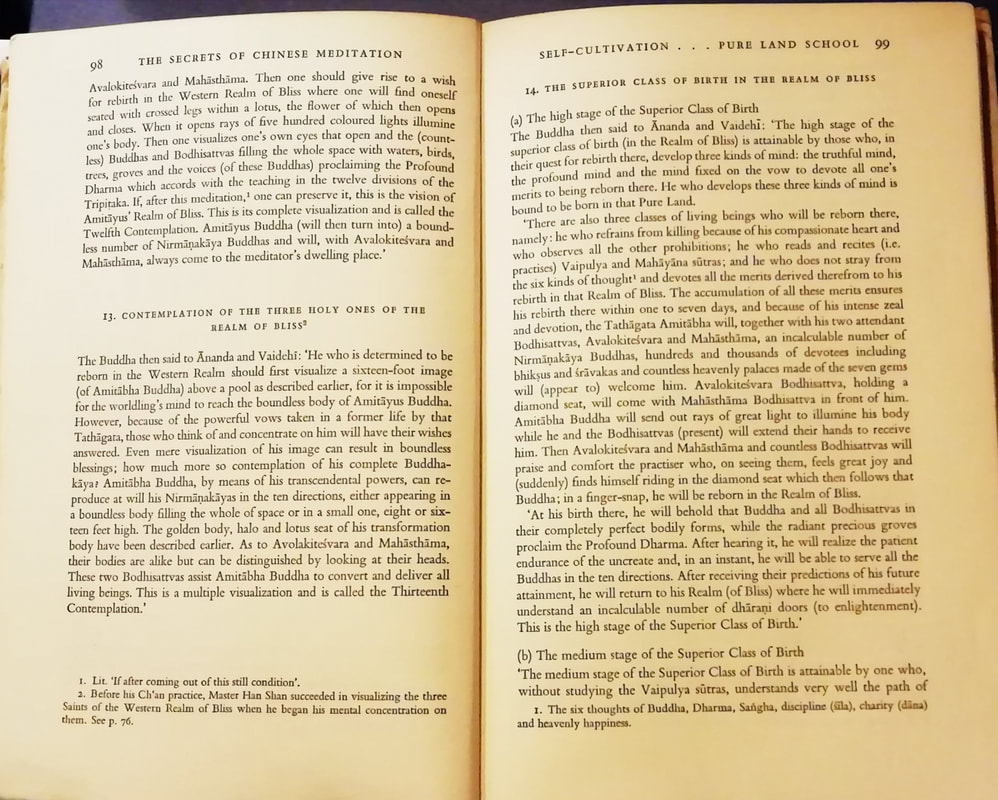
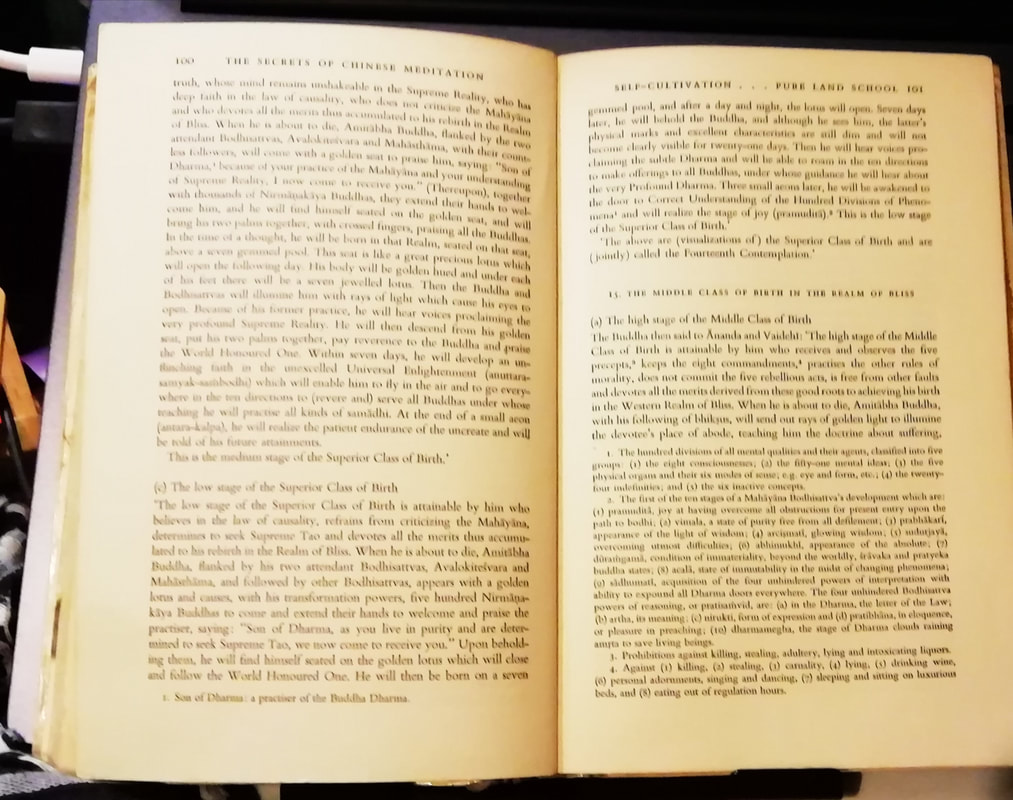
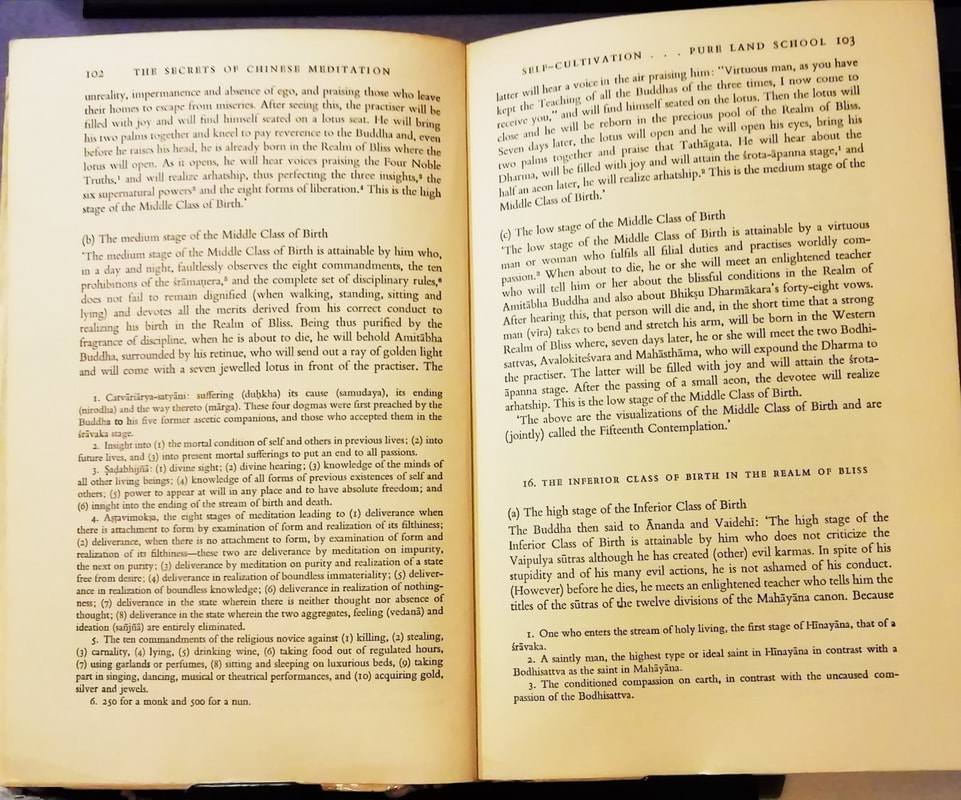
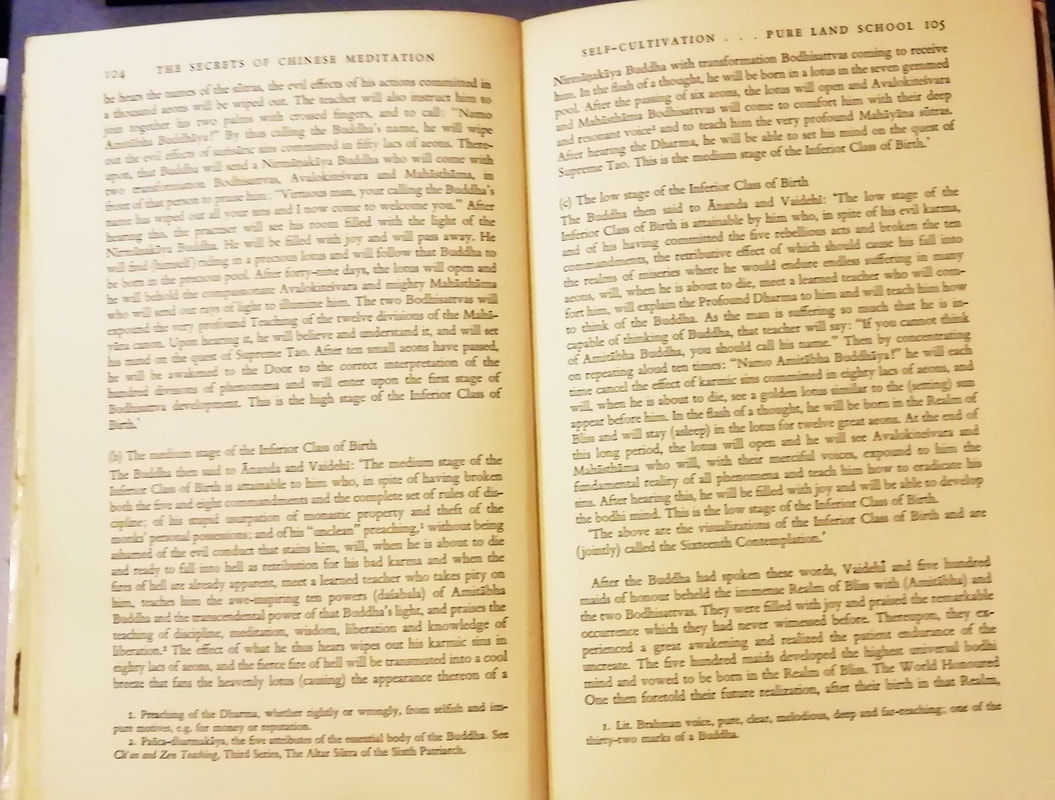
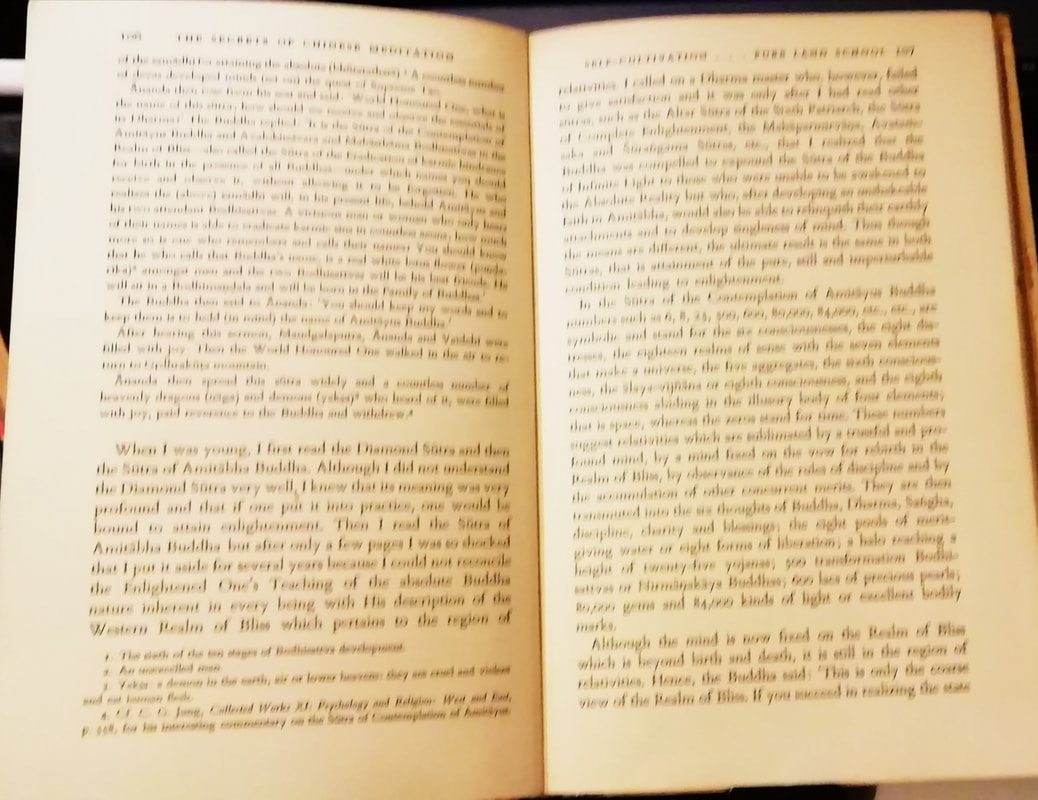
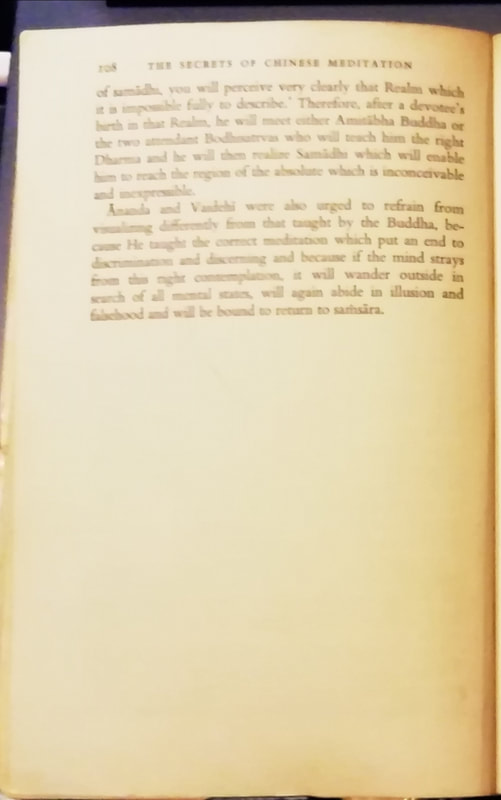


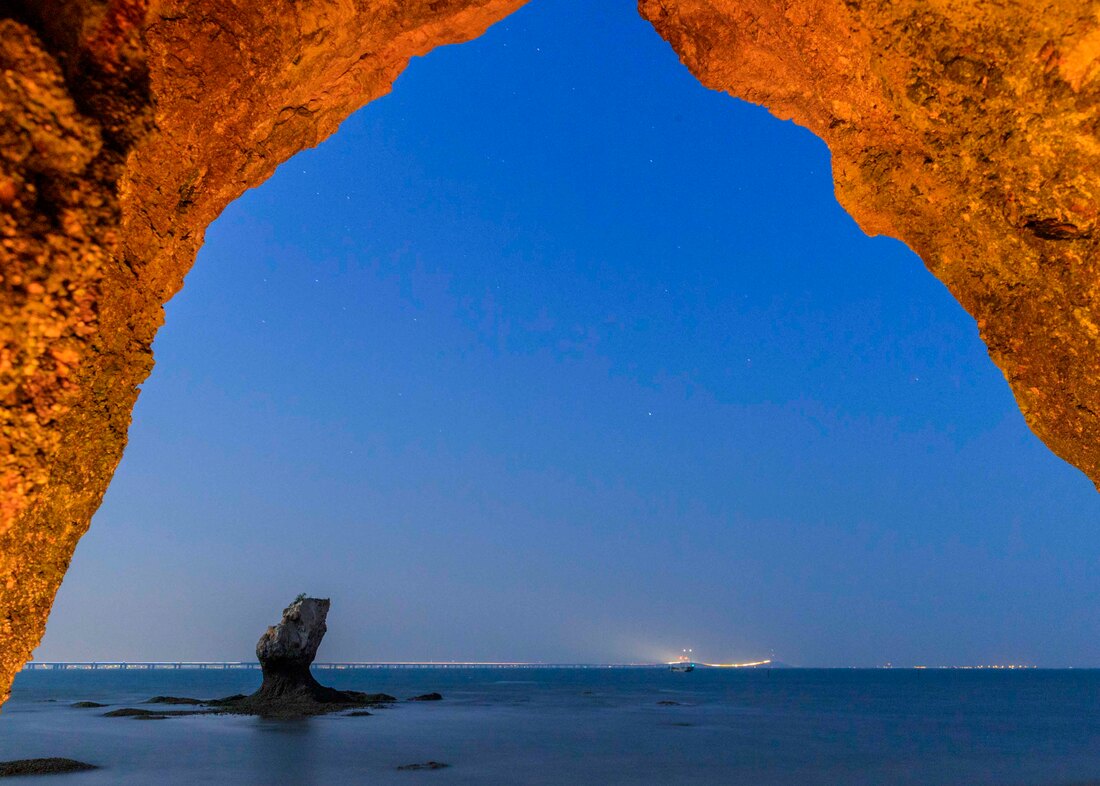

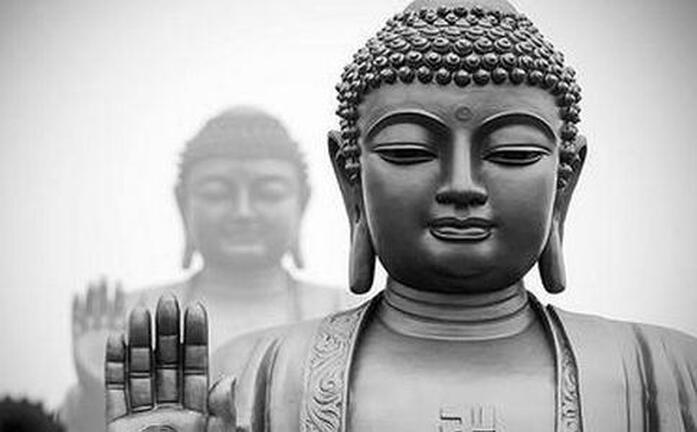
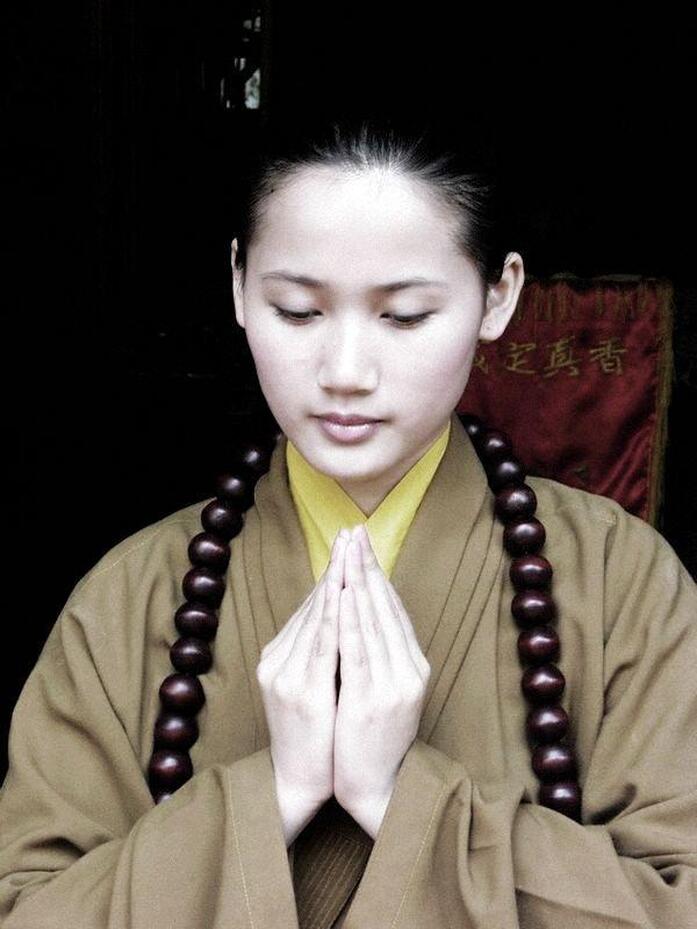
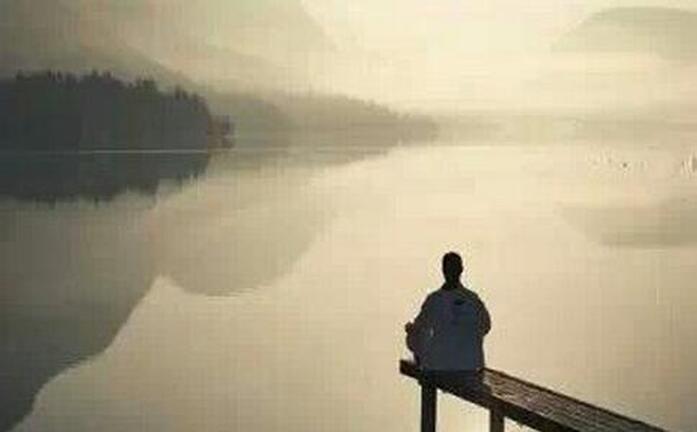

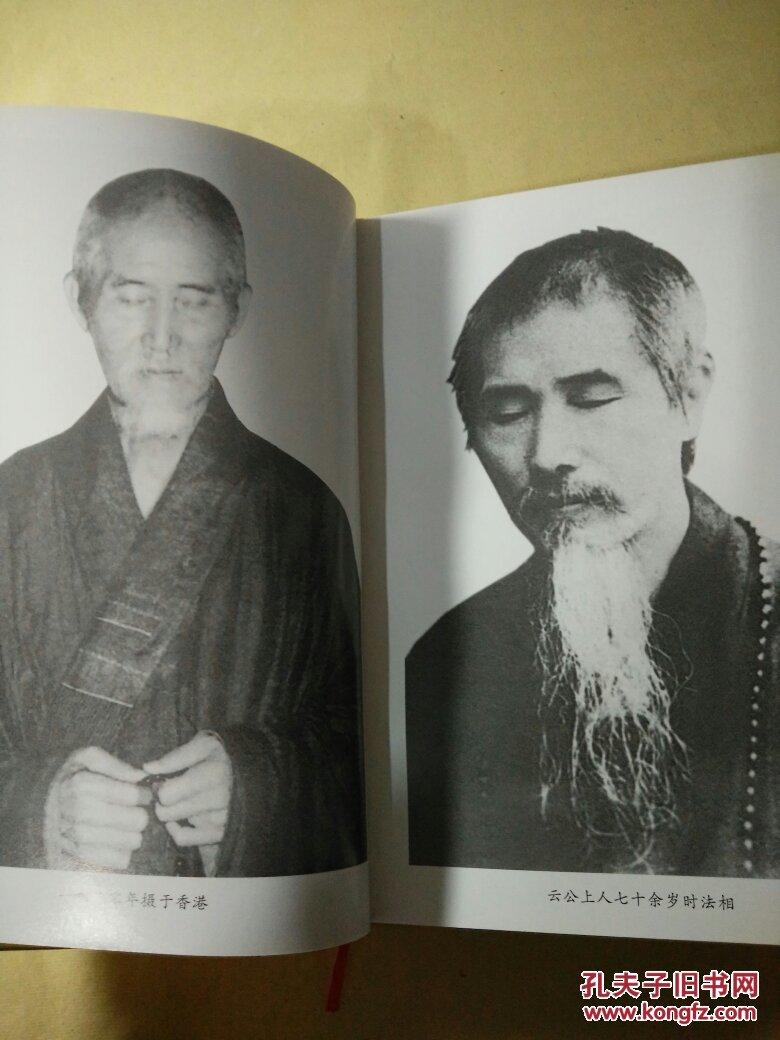
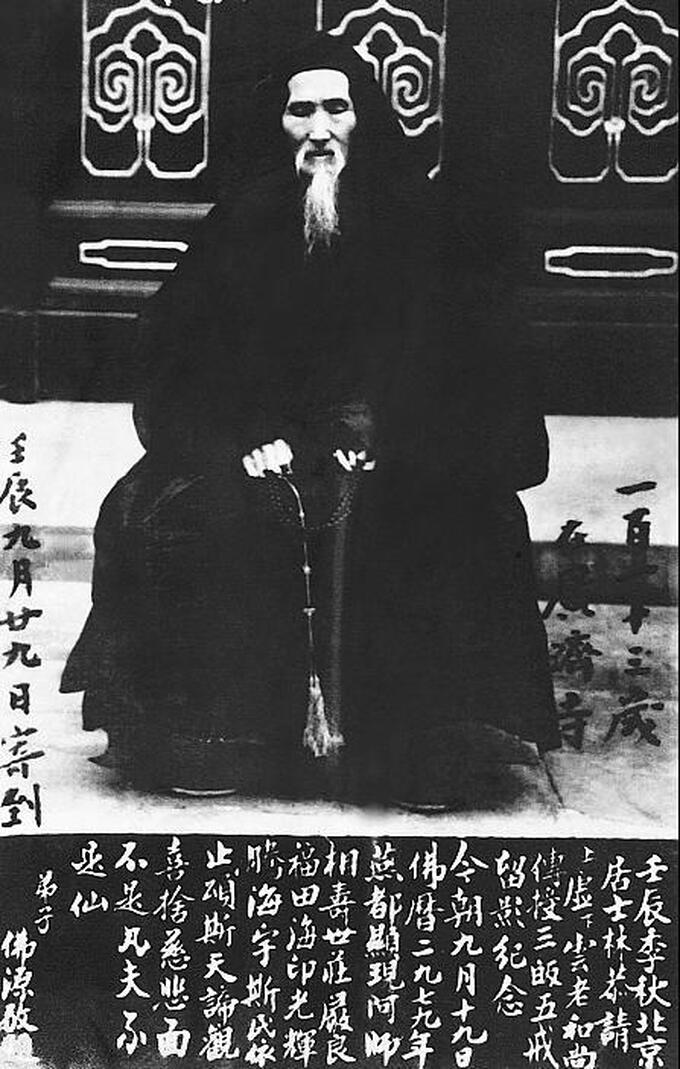
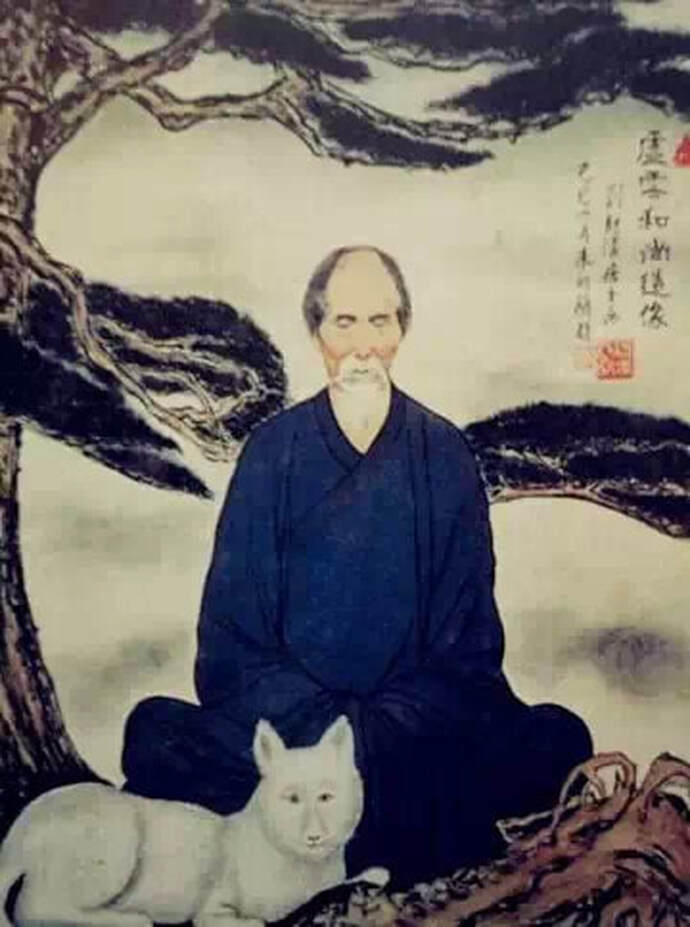
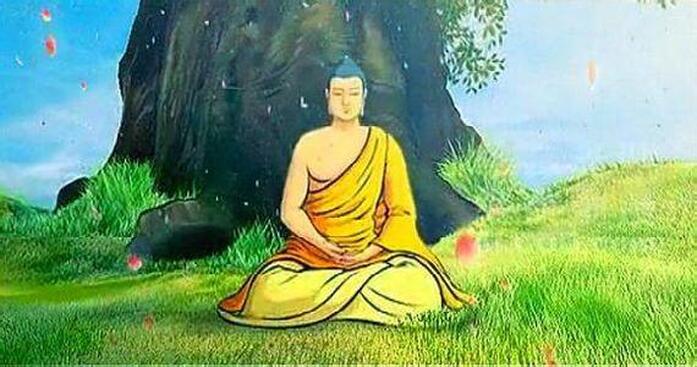
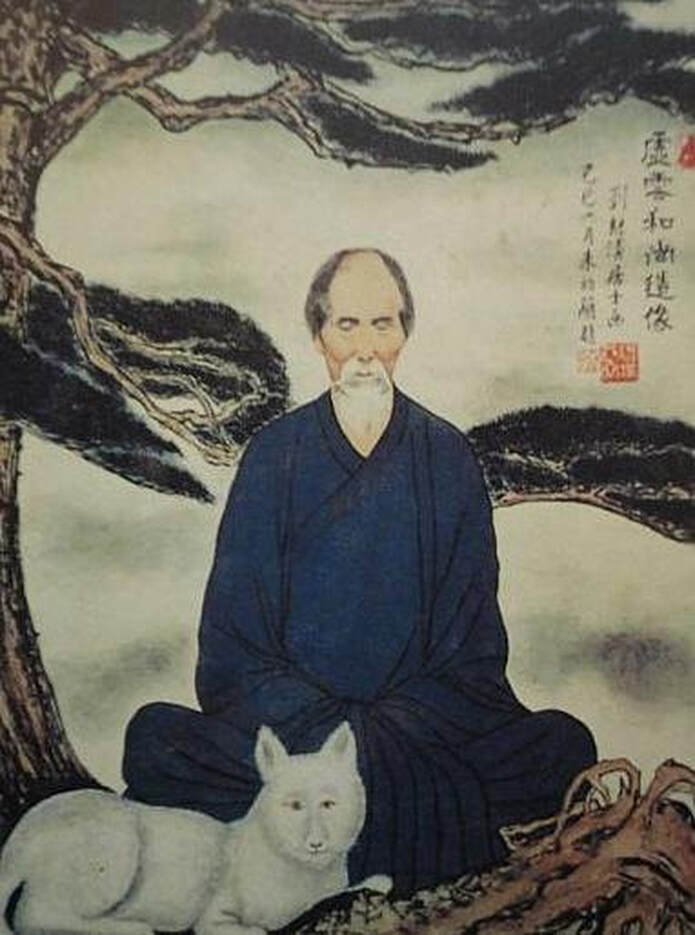
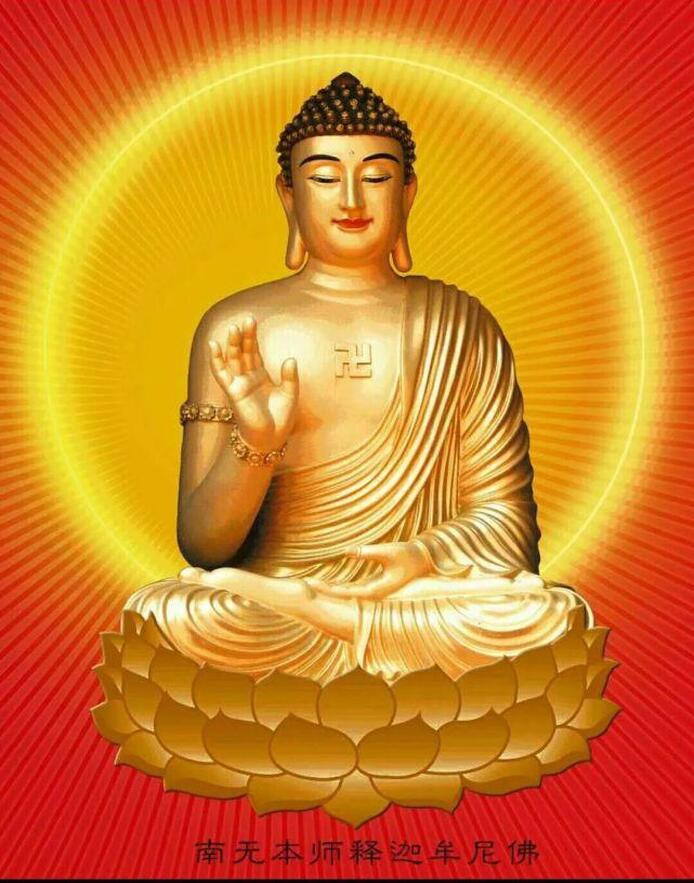
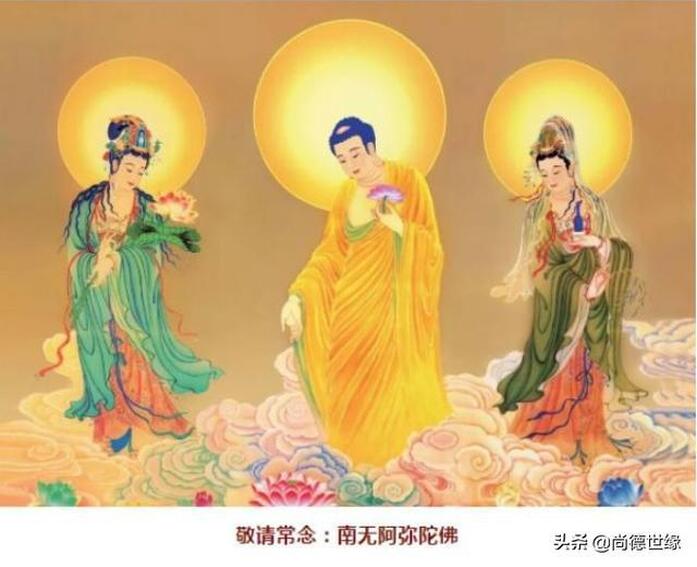



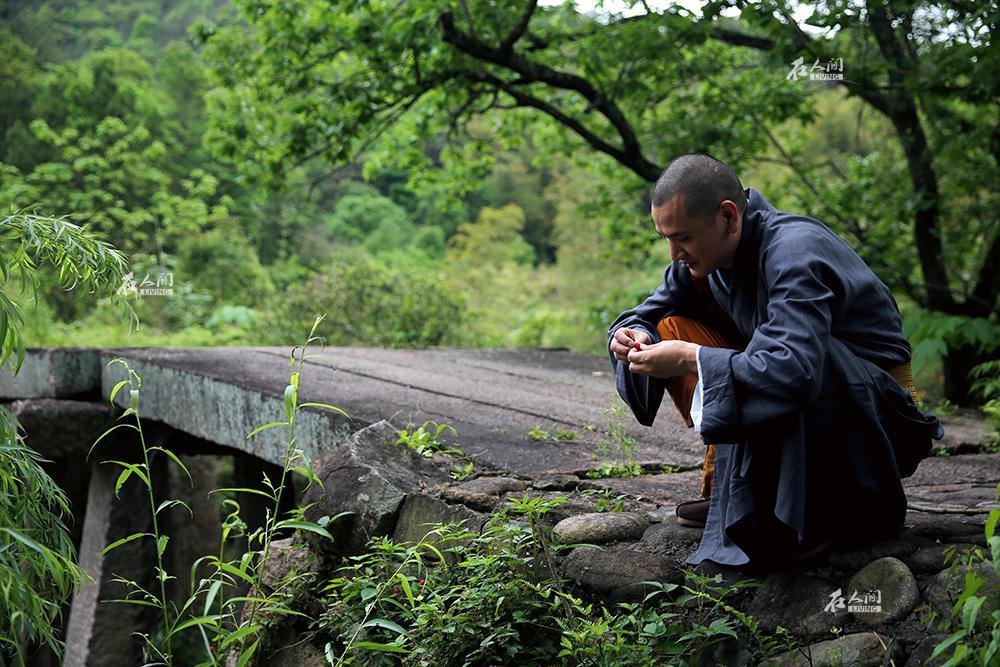
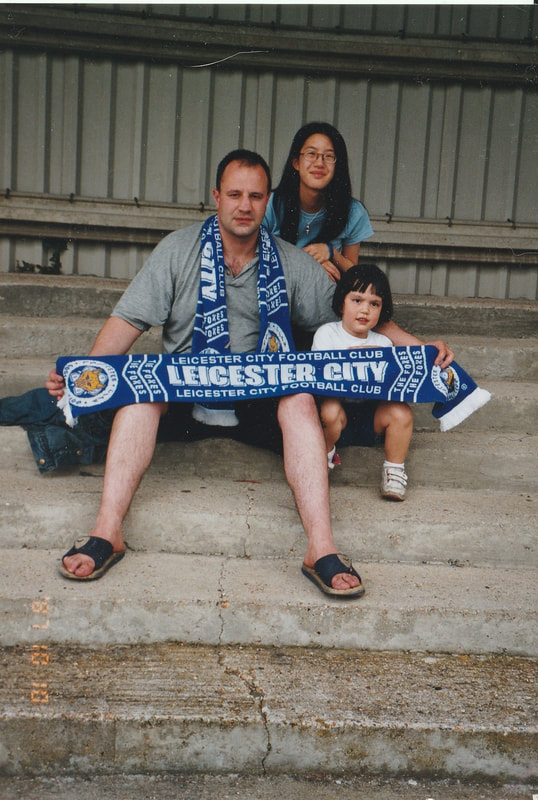
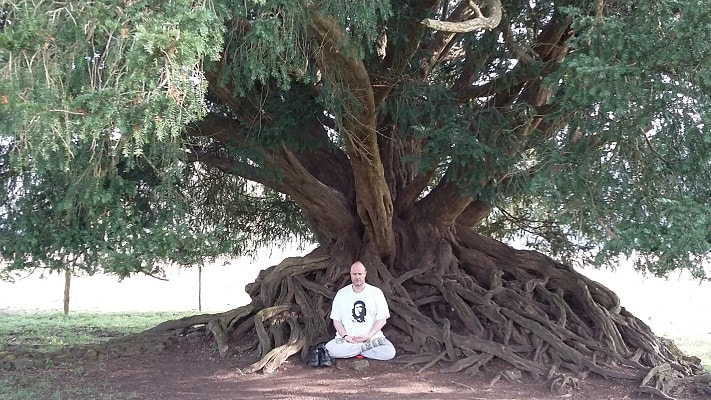
 RSS Feed
RSS Feed